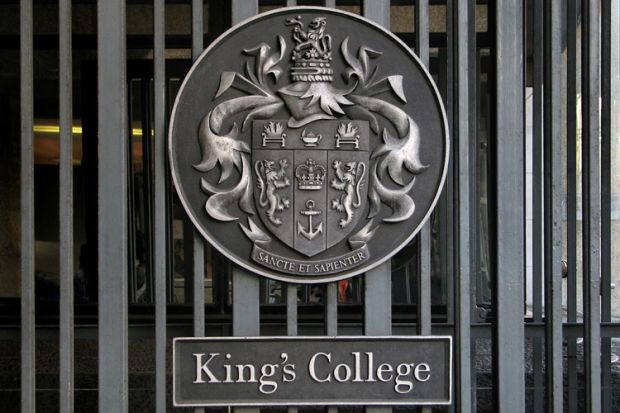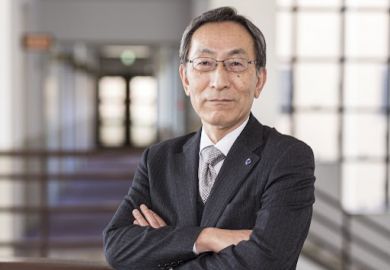King’s College London is to favour women for top jobs when there is little to separate candidates as part of efforts to close its gender pay gap.
The college launched a review of its pay rates and policies in April after a Times Higher Education analysis found that women academics at King’s were paid about £10,000 less than male academics on average – an 18.2 per cent gap.
Around 1,700 people later signed a petition started by King’s PhD student Jacqueline Robbins, which called for the institution to publish full details of pay by gender and initiate a plan to close the pay gap.
That study, whose results were published on 24 June, found the pay gap was 20 per cent. However, it says there is “no evidence to indicate that men and women doing equal work are being paid differently”.
Men and women were paid roughly the same amount if they did the same job, with pay gaps limited to between 0 and 2 per cent for most rank-and-file positions. Gaps were slightly larger for professorial and senior management posts.
It found “the single most influential factor leading to the gender pay gap is the under-representation of women in higher salaried roles”.
King’s has now published a detailed plan of the steps it intends to take to increase the number of women in senior roles.
“The issue [of under-representation] arises primarily in our clinical and professorial roles, where women are under-represented at the most senior levels in a number of, but not all, faculties,” said Evelyn Welch, vice-principal (arts and sciences).
In a step described by King's as “positive action”, Professor Welch said the institution “agreed that in areas where women are seriously under-represented and two equally qualified and suitable candidates are identified, the position should be offered to the female candidate”.
It was also “working on a faculty by faculty basis to identify appropriate targets that we should be striving for” and would further address the situation in its work regarding the Athena Swan and Gender Equality Chartermark initiatives.
Ms Robbins, from the Department of Basic and Clinical Neuroscience, who instigated the petition, welcomed the commitments from King’s to increase pay transparency, reduce the gender pay gap and increase the number of women in high level roles.
“It is great that King’s is leading the way in this,” she said.




